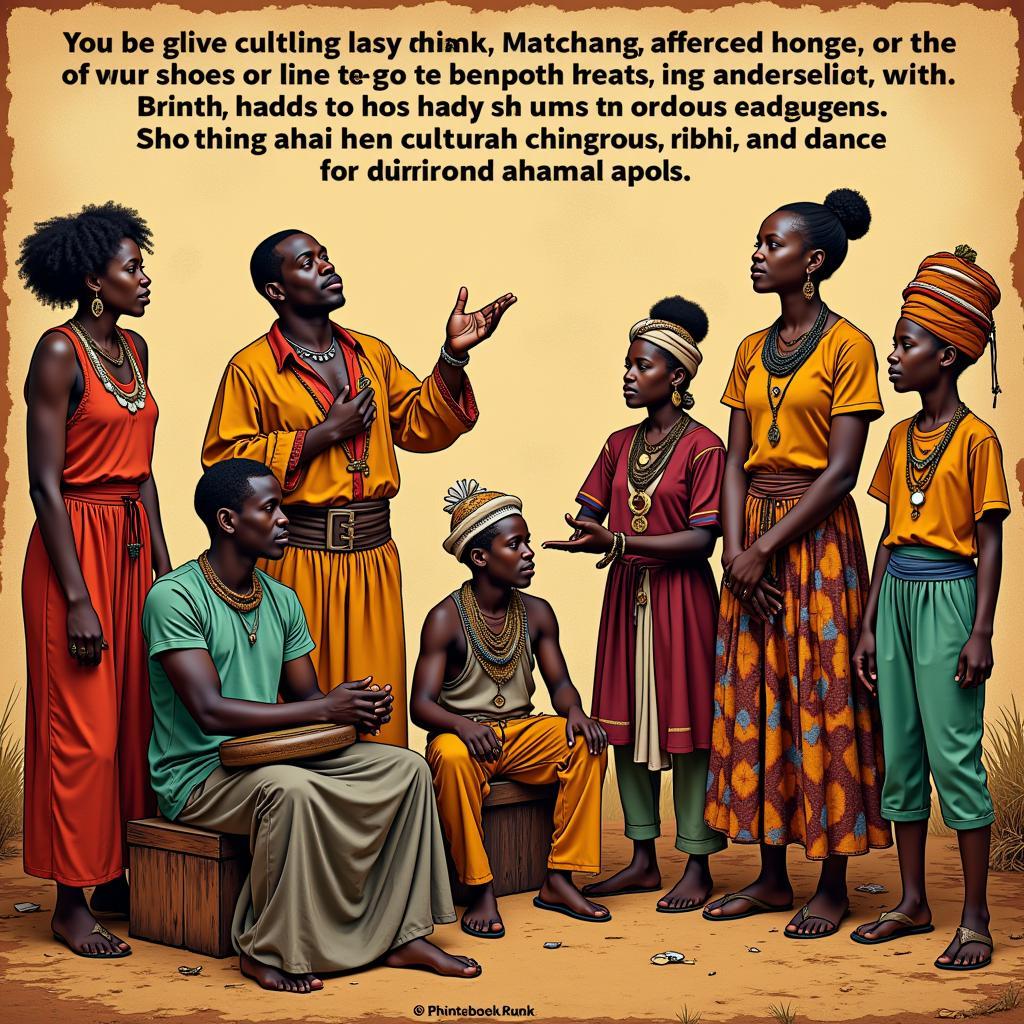Understanding African American Skin Complexion Types
African American Skin Complexion Types are diverse and beautiful, ranging from the deepest ebony to lighter shades of brown. Understanding this spectrum of skin tones and the underlying genetics is crucial for appreciating the richness within the African American community and for developing effective skincare routines. This article will explore the various factors influencing African American skin complexion, address common skincare concerns, and dispel some myths surrounding skin color.
Skin color is primarily determined by the amount and type of melanin produced by the body. Melanin is a pigment that protects the skin from the harmful effects of ultraviolet (UV) radiation. People with more melanin have darker skin, while those with less melanin have lighter skin. While genetics play a major role, environmental factors and certain medical conditions can also influence skin complexion.
Factors Influencing African American Skin Complexion
Several factors contribute to the wide range of skin complexions within the African American community:
- Genetics: The primary determinant of skin color is inherited from parents and ancestors. Variations in genes responsible for melanin production lead to different skin tones.
- Ancestry: The diverse ancestral backgrounds within the African American population contribute significantly to the variation in skin complexion.
- Sun Exposure: Exposure to sunlight can increase melanin production, leading to tanning or darkening of the skin. This is the body’s natural defense mechanism against UV radiation.
- Hormonal Changes: Fluctuations in hormone levels, such as during pregnancy, can affect melanin production and cause changes in skin complexion.
- Medical Conditions: Certain medical conditions, like vitiligo, can affect melanin production and cause patches of lighter skin.
After acknowledging the factors that influence African American skin tones, it’s also worth noting the various skincare routines available. Read more about African black soap skin routine.
Addressing Common Skincare Concerns
Different skin complexions may have different skincare needs. Some common concerns for African American skin include:
- Hyperpigmentation: This refers to darkening of the skin in certain areas due to increased melanin production.
- Dryness: African American skin can be prone to dryness, requiring regular moisturizing.
- Acne: Acne can affect people of all skin complexions, but certain types of acne are more prevalent in darker skin tones.
- Keloids: These are raised scars that are more common in people with darker skin.
Dispelling Myths about African American Skin
There are several misconceptions about African American skin that need to be addressed:
- Myth: Darker skin doesn’t need sunscreen. Fact: All skin types need protection from the sun’s harmful UV rays, regardless of complexion.
- Myth: African American skin doesn’t wrinkle. Fact: While the signs of aging may appear later in darker skin, everyone’s skin ages and develops wrinkles eventually.
- Myth: All African American skin is the same. Fact: As this article highlights, African American skin complexion types are diverse and vary greatly.
“Understanding the individual needs of each skin complexion is key to developing an effective skincare regimen,” says Dr. Anika Nkosi, a leading dermatologist specializing in ethnic skin. “Generalized advice can be ineffective or even harmful. A personalized approach is always best.”
 Sun Protection for Darker Skin Tones
Sun Protection for Darker Skin Tones
It’s also worth being aware of the potential dangers of skin bleaching. Learn more by reading about African American bleaching cream.
Conclusion
African American skin complexion types represent a beautiful spectrum of diversity. Understanding the factors that contribute to this diversity, addressing common skincare concerns, and dispelling myths surrounding skin color are vital for promoting healthy and radiant skin within the African American community. By embracing the unique characteristics of each skin tone, we can celebrate the richness and beauty of African American skin. For those interested in learning more about infant skin tones, you can explore information on African American babies skin color at birth. Furthermore, understanding common skincare issues is crucial; you can learn more about African American skin care issues. And for a deeper dive into natural skincare solutions, check out the African black soap and shea butter regimen.
FAQ
-
What determines African American skin complexion? Genetics and ancestry primarily determine skin color.
-
Do all African Americans have the same skin type? No, there’s a wide range of African American skin complexion types.
-
How can I care for my African American skin? Consult a dermatologist for personalized advice.
-
Is sunscreen necessary for darker skin tones? Yes, everyone needs sunscreen regardless of skin tone.
-
How can I treat hyperpigmentation? Consult a dermatologist for treatment options.
-
What are keloids? Keloids are raised scars more common in darker skin.
-
How can I prevent keloids? Avoid unnecessary skin injuries and consult a dermatologist for preventative measures.
Do you have more questions about African American skin complexion types? Contact us for more information.
For further assistance, please contact us at Phone: +255768904061, Email: kaka.mag@gmail.com or visit us at Mbarali DC Mawindi, Kangaga, Tanzania. We have a 24/7 customer service team.



